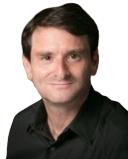

Is psychology accumulating knowledge? It might seem that the answer is transparently yes - why would people spend their time reading blogs such as this one if the field weren't making progress? - but there are some who have worried quite a bit about the status of psychology - at least the "softer" parts of psychology, the parts concerned with social behavior - as a scientific enterprise.
In 1978, the late University of Minnesota psychologist Paul Meehl wrote: "I think we ought to acknowledge the possibility that there is never going to be a really impressive theory in personality or social psychology." So, that's pretty pessimistic. Pointing out that science is typically the gradual accumulation of knowledge, he said, "It is simply a sad fact that in soft psychology theories rise and decline," and "Theories in ‘soft' areas of psychology lack the cumulative character of scientific knowledge."
Was Meehl right? Well, it's difficult to find ways to evaluate how an entire field is doing. Even if you thought Meehl's pessimistic view of the soft sciences were correct, how would you try to provide evidence one way or the other? How to judge an entire scientific field?
Well, on December 16th, Google launched Ngram viewer. (I thank my student, Justus Myers, for putting me on to this.) This search tool allows one to look a set of words in millions of books that have been digitized and so can be searched. (It returns the proportion of books with the search term, not the frequency, which controls for the increase in books over time.) I want to be clear that I'm not saying that this in any way is the definitive measure of anything so complex as the nature of an entire discipline. But I thought it would be interesting to present a few results of my playing around with the tool. (Try it. Turns out it's quite fun.)
First, I thought I'd see what things look like in a hard science, physics. I don't know all that much about physics, so I might not have picked representative theories, but here's what the graph looks like, with time (1920 to 2000) on the horizontal axis, and fraction of books with the term on the vertical axis.

Next I thought I'd look at biology. I put in four theories, including the theory of evolution by natural selection (of course), and three additional theories that came about in the sixties and seventies. It looks like this:
Of course I cherry picked theories that I knew turned out to be pretty good, so obviously there's a bias here. But I do think these pictures at least imply that you don't see what Meehl is worried about, a kind of "flavor of the week" kind of process, where theories rise in popularity, then fall out of favor. If that were the case, instead of seeing upward slopes, you would see a bunch of humps, with peaks at different times, with theories coming and going, like fads.
So, next I wanted to pick some theories from social psychology. Meehl specifically mentioned "Level of Aspiration" in his paper, so I thought I'd use that one. He wrote about this idea that it was "supposed to be a great powerful theoretical construct that would explain all kinds of things about the human mind from psychopathology to politics."
Then I picked a few other theories that were part of my education. Now, when you look at the chart, bear in mind I cheated a bit. The curves are smoothed, and I picked the capitalization that made things look clean. (Searches are case sensitive.) Anyway, I put in four popular ideas in social psychology, and here's what I got:

From this - and I want to reiterate that this is an extremely crude and very flawed method - you might think that social psychology looks really different from the hard sciences, and consists of exactly what Meehl was talking about, the coming and going of theories. (By the way, Meehl's idea actually predicts the gradual, rather than sudden decline of theories. He wrote that in the hard sciences, theories that don't succeed "suffer destruction in the face of recalcitrant facts and are abandoned" while in the soft sciences they "just slowly fade away.")
Don't get me wrong. I'm optimistic. I think that social science will make progress. (And I have some ideas about how it will do so, though not everyone seems to agree that grounding the soft sciences in the hard science of biology is a good idea.) And I think it's really important for the social sciences to progress. The problems we face are, really, problems for the soft sciences, having to do with issues like how we can reduce intergroup conflict, fight corruption, and prevent crime. Political humorist PJ O'Rourke, among others, has argued that our problems are often, perhaps usually, not technological so much as political, all about who we are as social creatures.
If soft science is the key to our future, doesn't it merit a hard look?
Reference
Meehl, P. E. (1978). Theoretical Risks and Tabular Asterisks: Sir Karl, Sir Ronald, and the Slow Progress of Soft Psychology. Journal of Consulting and Clinical Psychology, 46, 806-814.
Copyright Robert Kurzban 2010. All rights reserved.



